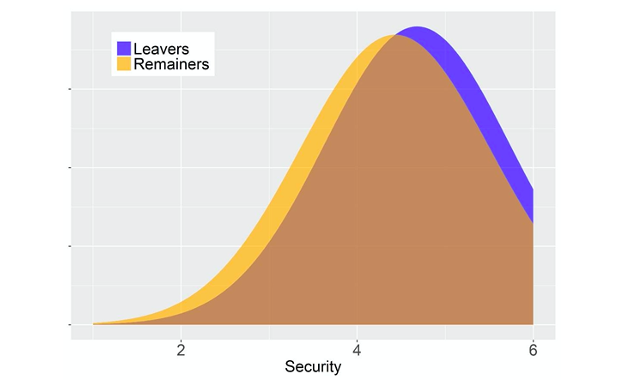Dr Lukas Wolf is a Research Associate in the Department of Psychology at the University of Bath.
With the much anticipated 2020 US election on the horizon, campaigning in full swing, and political debates sprawling up all over the US and beyond, one outcome is certain: Whether Trump is re-elected or vacates the oval office to Joe Biden, the election will bring triumph to the winner(s) and despair to the loser(s).
While that is true of most elections to some extent, the US is seemingly on another level with its entrenched two-party system and heavily polarised political debates. In other words, whether Trump or Biden wins the election, approximately half of the population will likely come to view the winner as “not my president”.
Under Trump, a continuation of his agenda is likely to further disenfranchise many voters, with claims that forest fires are caused by improper management rather than climate change, and that the flu is deadlier than COVID-19. Under Biden, many of Trump’s political decisions such as pulling out of the World Health Organisation (WHO) or withdrawing from the Paris Climate Agreement might be directly reversed, alienating many other voters. In short, there is a very real fear that the already deep divisions in the political atmosphere in the US will be further deepened in the lead up to, and aftermath of, the 2020 US election.
The obvious question is: What can be done to halt or even reduce the political divisions in the US? There may be little the future president can do. For instance, although a future president might proclaim himself to be the president of all Americans to reduce divisions, it is difficult to imagine that many voters from the opposing camp will be swayed by such attempts. Rather, change is likely to be more pervasive and lasting when it comes from the people, rather than from the top.
Recent evidence from our research lab points to one promising way of reducing these divisions and increasing social connectedness: highlighting what we have in common. We found a range of positive outcomes for people who perceive their fellow citizens to share their personal values or fundamental life-guiding principles. For instance, higher value similarities are linked with higher levels of life satisfaction and mental well-being, and with more positive views of immigrant groups such as Muslim immigrants or refugees. Hence, Republicans and Democrats who view the opposite camp to share their values should be happier in life, and view their political counterpart more positively.
It is good news then, that research has found extensive evidence that people actually have more in common than they believe, in spite of the frequently reported deep divisions between Republicans and Democrats. For example, around 90% of Republicans and Democrats express similar views towards issues such as alcohol use, extramarital affairs, freedom of speech, and COVID-19 restrictions. Even for typically divisive issues such as abortion and homosexuality, similarities of around 70% were found.
Evidence from our lab has found similar evidence beyond the US context. The 2016 Brexit referendum in the UK has produced deep divisions between those who voted to leave the European Union and those who voted to remain; divisions that are comparable to the current US political climate. Despite these divisions however, we found that both groups possess personal values or fundamental life-guiding principles that are highly similar, generally showing agreement levels of 90% or higher. For instance, among the 1,500 respondents, more than 90% of the Leavers and Remainers assigned similar levels of importance to values such as freedom, tradition, security, and honesty, and more than 80% agreed on how strongly they identify with being British. Other group constellations have shown comparable results.
However, and this is the crucial part, we often do not recognise these similarities in our values and attitudes. To a large part, this is because we are motivated to see our existing views confirmed and because of our selective exposure to media. This bias may lead us to infer from salient examples in the news that all Republicans or all Democrats flout COVID-19 guidelines or deny climate change. And because we view the opposing camp as having different values and attitudes, we evaluate them negatively, creating the deep societal divisions discussed above.
Importantly, we found that there are ways to correct these misperceptions of groups differences and thus bring people’s views of others’ values more in line with reality. For instance, in the context of the entrenched Brexit debate, we found that highlighting the amount of overlap in values between Leavers and Remainers can improve each groups’ views of the opposing group. We did this by showing participants graphs such as the one below. This graph depicts accurate information on how similar or different Leavers and Remainers are in how strongly they value security. Using this approach, other evidence suggests that people’s attitude towards Polish immigrants can be improved, and we have recently speculated that highlighting the amount of overlap between groups should motivate individuals to engage in collective efforts to tackle societal crises such as COVID-19. That is, seeing that our values are strongly shared by our fellow citizens should motivate people to follow the COVID-19 guidelines more closely because we feel that ‘we are in this together’.

Given the promising findings using this approach, US society would benefit from focusing on, spreading information on, and encouraging their fellow citizens to engage with the actual amount of overlap in values among individuals and groups. This emphasis on what unites us rather than what divides us should reduce the deep divisions between Republicans and Democrats and create a new sense of social connectedness with fellow citizens, regardless of their political views.
After all, whichever side you are on in the upcoming elections, Americans finding a way to see past divisions and working together again should be the election outcome we are all rooting for.
This post is part of on an ongoing series on the United States Presidential election, 2020. View more.
Register now for our upcoming event, ‘Grapes of wrath: The US Presidential Election and the American republic’ featuring US national editor and columnist at the Financial Times, Edward Luce.
Are you a decision-maker in government, industry or the third sector responding to the coronavirus crisis? Apply now to our virtual Policy Fellowship Programme for access to University of Bath research and expertise. Learn more.
All articles posted on this blog give the views of the author(s), and not the position of the IPR, nor of the University of Bath.
Respond




